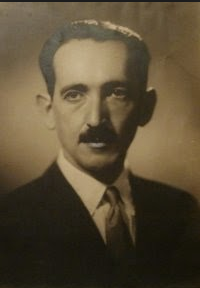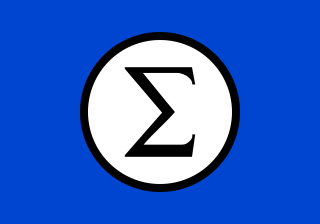
Jânio da Silva Quadros was a Brazilian lawyer and politician who served as 22nd President of Brazil from 31 January to 25 August 1961, when he resigned from office. He also served as the 24th and 36th mayor of São Paulo, and the 18th governor of the state of São Paulo. Quadros was known for his populist style of government, honesty, and his eccentric behavior. As president, he focused on economic reform and attempted to root out corruption. He also pursued an independent foreign policy, trying to balance relations between the United States and the Eastern Bloc. Although he was elected by a huge margin, his term was marked by uncertainty and political instability culminating in his resignation. This unexpected move caused national chaos, with the presidency being assumed by João Goulart.

Second Brazilian Republic is the period of Brazilian history between 1946 and 1964 also known as the "Republic of 46". It was marked by political instability and military's pressure on civilian politicians which ended with the 1964 Brazilian coup d'état and establishment of Brazilian military government.

Tancredo de Almeida NevesSFO was a Brazilian politician, lawyer, and entrepreneur. He served as Minister of Justice and Interior Minister from 1953 to 1954, Prime Minister from 1961 to 1962, Finance Minister in 1962, and as Governor of Minas Gerais from 1983 to 1984. He was elected President of Brazil in 1985, but died before he took office.

The Brazilian Socialist Party is a political party in Brazil. It was founded in 1947, before being abolished by the military regime in 1965 and re-organised in 1985 with the re-democratisation of Brazil. It elected six Governors in 2010, becoming the second largest party in number of state governments, behind only PSDB. In addition to that, it won 34 seats in the Chamber of Deputies and three seats in the Senate, besides having been a member of the For Brazil to Keep on Changing coalition, which elected Dilma Rousseff as President of Brazil.

Brazilian Integralist Action was an integralist/fascist political party in Brazil. It was based upon the ideology of Brazilian Integralism as developed by its leader Plínio Salgado. Brazilian Integralism supported a revival of spirituality in Brazil in the form of Brazilian nationalism to form a shared identity between Brazilians. It denounced materialism, liberalism, and Marxism. It was violently opposed to the Brazilian Communist Party and competed with the Communists for the working class vote.
The Social Democratic Party was a political party in Brazil between 1945 and 1965. It was founded by Getúlio Vargas when he transformed his Estado Novo into a multi-party system. The PSD was a centrist party which represented the more conservative wing of the Getulist movement. The other pro-Vargas party was the Brazilian Labour Party (PTB).

The Revolution of 1930, also known as the 1930coup d'état or coup of 1930 was an armed movement in Brazil led by the states of Minas Gerais, Paraíba and Rio Grande do Sul, culminating in a coup. The revolution ousted President Washington Luís on October 24, 1930, prevented the inauguration of President-elect Júlio Prestes, and ended the Old Republic.

General elections were held in Brazil on 2 December 1945, the first since the establishment of Getúlio Vargas' Estado Novo. The presidential elections were won by Eurico Gaspar Dutra of the Social Democratic Party (PSD), whilst the PSD also won a majority of seats in both the Chamber of Deputies and the Senate. Voter turnout was 83.1% in the presidential election, 83.5% in the Chamber elections and 76.7% in the Senate elections.

Adhemar Pereira de Barros was the mayor of São Paulo (1957–1961), and twice elected Governor of São Paulo.

General elections were held in Brazil on 3 October 1950. The presidential elections were won by Getúlio Vargas of the Brazilian Labour Party, whilst the Social Democratic Party remained the largest party in both the Chamber of Deputies and the Senate, although they lost their majority in the former. Voter turnout was 72.1% in the presidential election, 72.0% in the Chamber elections and 77.7% in the Senate elections.
Antônio de Barros Carvalho, better known as Barros Carvalho was a landowner and Brazilian politician. He was congressman and senator for the state of Pernambuco.

Direct presidential elections are held in Brazil as part of the general elections every four years, typically in October. The current electoral law provides for a two-round system in which a candidate must receive more than 50% of the vote to win in the first round; if no candidate passes the 50% threshold, a run-off is held between the top two candidates. Every candidate has a running mate who disputes the post of vice-president; prior to 1966, the vice-president was elected separately.




















